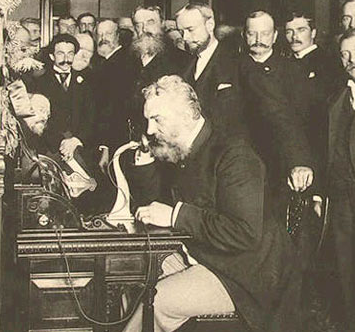New York City Welcomes Anti-Muslim Activists

The greatness of New York City will be on full display soon, when we welcome the right of non-New Yorkers like Pamela Geller and Geert Wilders, who want to ban the Muslim faith or at least its books, respectively, and Newt Gingrich, whose thoughts and motivations on the matter seem murky, to have a legal demonstration in Lower Manhattan against the right of Americans to enter into real estate contracts and the right of local governments to make their own laws.
It’s a shame that the few hundred demonstrators are coming on September 11th though.
There will also be spirited counter-rallies by New Yorkers, to ensure that it’s known that not everyone in America agrees that a religion should be banned, and a demonstration on September 12 as well.
In complicating news, Eid al-Fitr-a happy day at the end of Ramadan (which itself is a period not unlike the Christian Lent), when you dress nicely and are nice to other people and wish them the best-falls on September 10 this year.
I truly hope all these people, Muslims and anti-Muslims alike, enjoy spending their money in support of our extremely gay, drug-addled, sexually promiscuous city. Take in a show! Have a ball!
Grandma's Diabetic Piss Whiskey

“James Gilpin, who recently graduated from Design Interactions in London, suffers from type 1 diabetes. He has used his own experience of the condition to explore but also discuss the consequences of using science to alter our bodies’ abilities.
The designer’s project, Gilpin Family Whisky, is inspired by the fact that large amounts of sugar are excreted on a daily basis by diabetic patients-especially older people-who don’t have adequate control of their sugar levels. Processing old people’s urine to produce whisky of high economic value is not a scheme sponsored by the government to solve Britain’s looming pension crisis, it is the starting point for a discussion with health care professionals about the everyday problems caused by diabetes.”
The Full Duplex Press: My Gmail Phone
by Jane Hu

In Marshall McLuhan’s prophetic 1964 analysis, Understanding Media, he defines the telephone as “speech without walls.” At the end of the 19th century, the new postal system of telephone calls went beyond letters and telegrams to collapse the time and space between two distinct-and simultaneous-voices. Yet within the course of telephonic traffic, lines get jammed. We stare at phones with telepathic (if often futile) fervor, our eyes and mind willing it to ring. Our appetites for attention and news and scandal feed our wish for the phone to ring. As phones grow more digitized and versatile-and, sometimes, less versatile and less simultaneous-our dependence on them means we must continually readapt our roles as storytellers and listeners. Still, telephones may be the greatest symbol of modernity; the phone has never lost touch of our desire to stay in touch.
The telephone’s prominent place in film bespeaks its newness. The phone is to cinema what letters are to novels: a chance for separate plots and separate people to converge, entangle, and subsequently unravel in a drive toward narrative closure. While Hollywood cinema incorporates phones into storylines of unbelievable tightness, the narrative of real-life technology progress lacks this linearity. McLuhan calls it “one of the ironies of Western man that he has never felt any concern about invention as a threat to his way of life” [PDF]. Forever, we possess a childlike tendency to experiment first and worry later. Only in retrospect do we peer on our past with alarm, dissecting an already-lived trajectory into worrisome fragments. To periodically look back on telephonic history is to remember that phones are both tools of enchantment and efficiency; few things compare to the transmission of the human voice.
And what better time to begin with than now.
Google Voice, which launched March 11, 2009, joined Gmail this week to create a phone function in Gmail chat. Like Google Voice, this new application allows free calls across the United States and Canada. You can also screen calls and link your online account to all your other phones. The dialing process is straightforward and Gmail doesn’t require you to register a number to place calls, although you need one to receive them. Canadian residents do not have the latter option, although it’s said to be in the works. I tested my Gmail phone with one of the few numbers I know by heart-my mom’s-and we had, as far as sound is concerned, a clear conversation. (She did ask me to send her the link to this new online phone.)
Farhad Manjoo uses the new phone plugin to make an argument for the landline, which, he points out, still holds a central position in the household. Manjoo predicts that developments will occur in the form of landline phones, which might integrate with “your tablet computer, your digital music player, your TV, your stereo, and probably your toaster…Your contacts will move easily between all your devices, so you’ll never have to remember a phone number again.” The merging of the telephone with other technologies doesn’t limit our communication options to one landline, but diffuses them throughout the home and into online space. In time, too, we may simply become our landline; an identifying code that can route anywhere.
The Gmail phone further blurs the line between audio and written communication. Our modern-day epistolary instrument-the email account-can now also effortlessly transmit information through sound. If it’s a voicemail, sound can, in turn, be transcribed back into writing. Supposing Gmail later implements an automatic voice-to-text function on all calls, the potential for easier discourse between people with disabilities also expands. After all, Alexander Graham Bell and his father Melville Bell strove to render speech visible in order to improve conditions for the deaf; this project ultimately produced the telephone.
On the flip side, Peter Nowak warns that Google intends to collect voice samples through the online phone to build a better voice search system. Consider the ambiguous Google Voice privacy policy:
Google’s computers process the information in your messages for various purposes, including formatting and displaying the information to you, playing you your messages, backing up your messages, and other purposes relating to offering you Google Voice.
Given the textual mass generated by Google Books, it seems logical that a sound database is also in the works. And there’s something appropriately uncanny about voice archives that contain unwitting samples of everyday life.
My relationship with my Gmail account extends far deeper than that with my cell phone. Whereas I can turn off my phone and place it in a corner, I have a harder time ignoring the green “Call phone” icon that now sits atop my contact list. And, as far as I can see, it cannot be budged. As Wired’s Ryan Singel suggests, this added element only reinforces our dependency on Gmail and Google: “Google just gave users another reason to always be logged into Gmail and in turn, their Google accounts.”
If soon we lose even the string of numbers that separates our abstract phone-identity from our physical selves, the phone will, once again, increase its pervasiveness and omnipresence. More and more, we move ourselves into an apparatus-a communication armor, owned and provided by corporations-that can send and receive messages at all times.
Flying Hummer Raises Hopes For New Generation Of Poorly-Endowed Men

To the frontiers of automotive technology: “The race to build the world’s first flying military jeep just moved a step closer to the finish line. The Pentagon’s Defense Advanced Research Projects Agency (DARPA) has selected two companies to proceed with the next stage of its Transformer, known as TX-a fully automated four-person vehicle that can drive like a car and then take off and fly like an aircraft to avoid roadside bombs. Lockheed Martin and AAI Corp., a unit of Textron Systems, are currently in negotiations with DARPA for the first stage of the Transformer project, several industry sources told Popular Mechanics at a robotics conference here in Denver.” I guess the consolation here is by the time this thing turns into a trendy consumer status symbol we will have already done such irreparable damage to the environment that it won’t make much of a difference.
Chilean Government To Bail Out Mining Company -- Or At Least Its Miners
Here is the first video of the 33 miners trapped in a collapsed gold and copper mine in Chile-where they will be for the next three or so months. Apparently the company that owns the gold mine is nearly bankrupt: “San Esteban is in such bad shape that it has neither the equipment nor the money to rescue the men; Chile’s state-owned mining company is going to drill the escape tunnel, which will cost about $1.7 million…. On Thursday, the first of many expected lawsuits against San Esteban and the government were filed, and a judge ordered the retention of $1.8 million of company money in anticipation of the suits.” The Chilean government has decided to foot the bill for the rescue mission (either because it was the right thing to do or for a boost in their lagging popularity), rather than just leaving the trapped miners there forever.
Obese Bear Will Act Friendly If You Buy Her A Drink
After being kicked out of the circus for gaining too much weight, a performing bear named Tian Tian has found a second career posing for pictures with patrons at a zoo in Shandong, China. “When she first arrived at the zoo and tourists began to request pictures, officials decided to turn her into a full-time ‘picture bear’. She soon began to adopt special poses for photographs by putting on a casual look and leaning on a fence. In return, she stares at tourists’ food until they give it to her. She has become particularly fond of beer.” Yeah, that’s gonna end well.
Murdered Loner British Spy Either Totally Gay or Victim of Elaborate Gay Spy Plot

Almost everyone’s gay, including now Crispin Blunt, “the Tory MP and prisons minister,” who, at 50, is leaving his wife. (Yes he is Emily Blunt’s uncle, which would make anyone gay.) BUT. In other amazing English news today, one person who may not be gay is “murdered British spy Gareth Williams.” No, seriously, this whole thing makes The Valerie Plame Incident™ look sort of dull? Because: “Police sources believe one theory is the spy’s killer may have planted a trail of clues to make it seem as though he was murdered by a gay lover.” Those clues include what the Daily Mail adorably calls “the phone numbers of gay escort men,” found in his flat. There is, of course, less inflammatory text in the Telegraph. If you’d like your news more purple and yellow, try “Spy ‘could have died during sex game’” at the Scotsman. [N.B. For American readers, a “sports holdall” is a “gym bag,” and, no, we don’t really like to think about how someone got his dead body into one. Gah.]
I'm Going To Go With "Actually Crashing"
“British Airways apologized to passengers after an emergency message warning they were about to crash into the sea was played by mistake. About 275 passengers were on the London Heathrow to Hong Kong flight on Tuesday evening when the automated message went out. The plane was flying over the North Sea at the time. Cabin crew quickly realized the error and moved to reassure the terrified passengers. ‘We all thought we were going to die,’ Michelle Lord, 32, of Preston, northern England, told The Sun newspaper. Another passenger was reported saying: ‘I can’t think of anything worse than being told your plane’s about to crash.’”
-Um, I can!
Golf Courses Maybe Not Totally Evil

As a hater of golf courses, maybe I need to relax somewhat? “Two Swedish scientists found that a large majority (63 percent) of the 200+ golf courses they studied in the UK ‘were found to have ecological values similar to or higher than nature-protected sites’ such as forest areas, state parks, and biological preserves. They concluded that ‘golf courses play an essential role in biodiversity conservation and ecosystems management.’”
